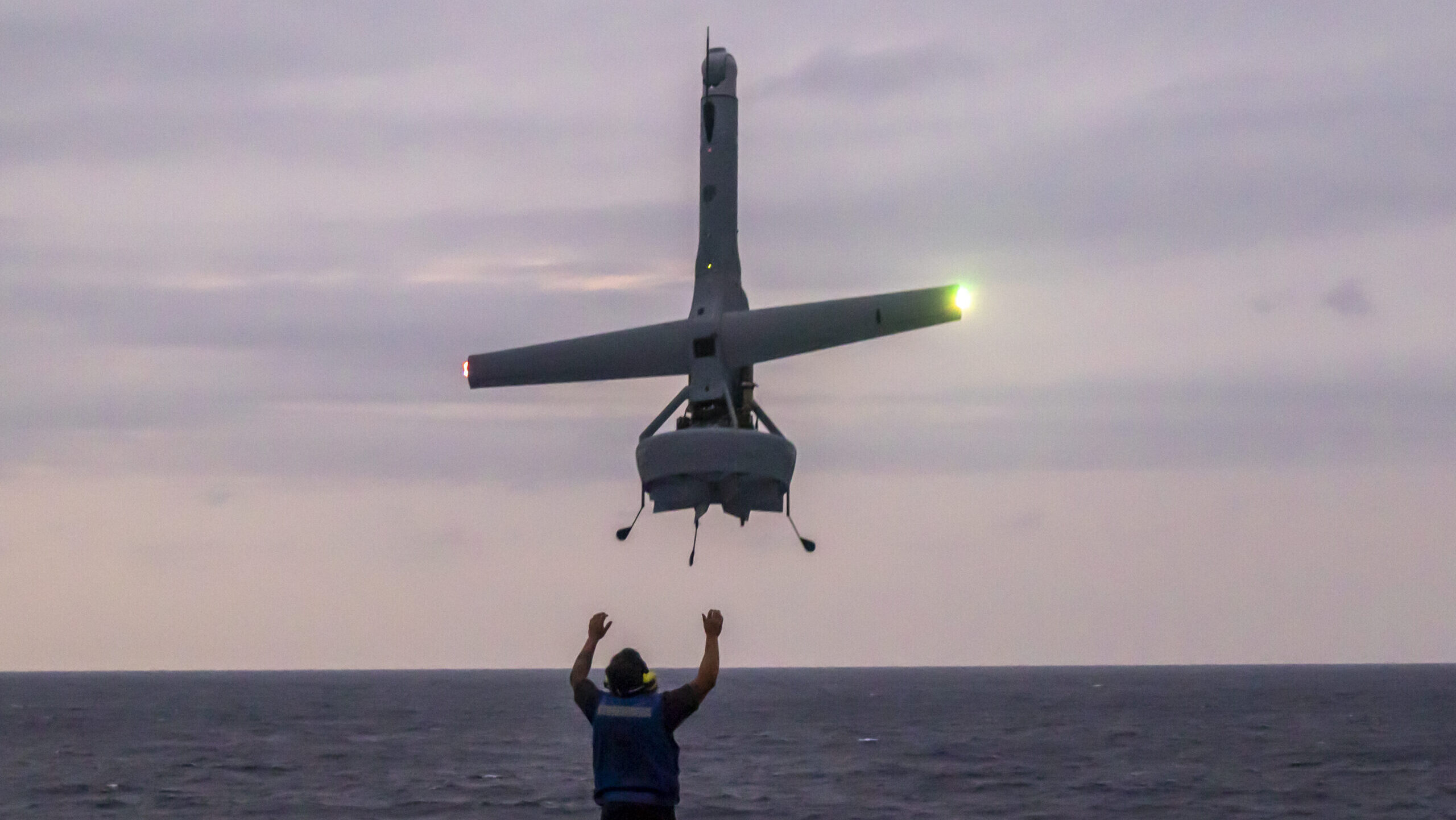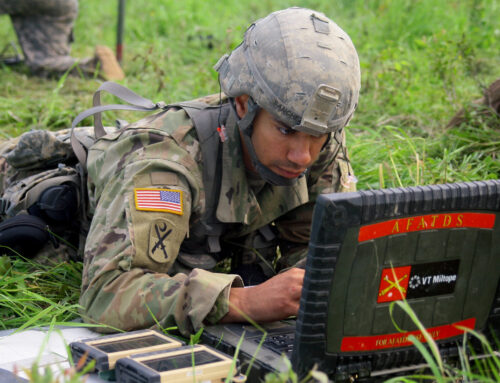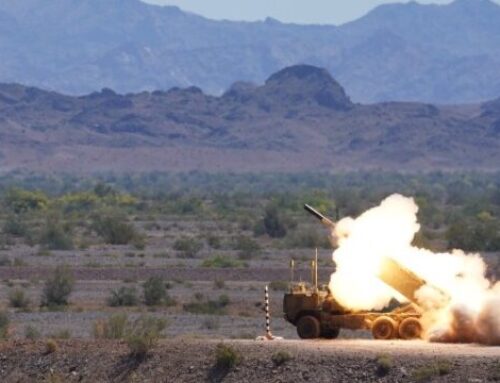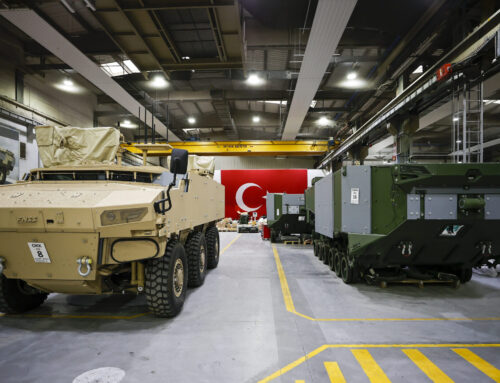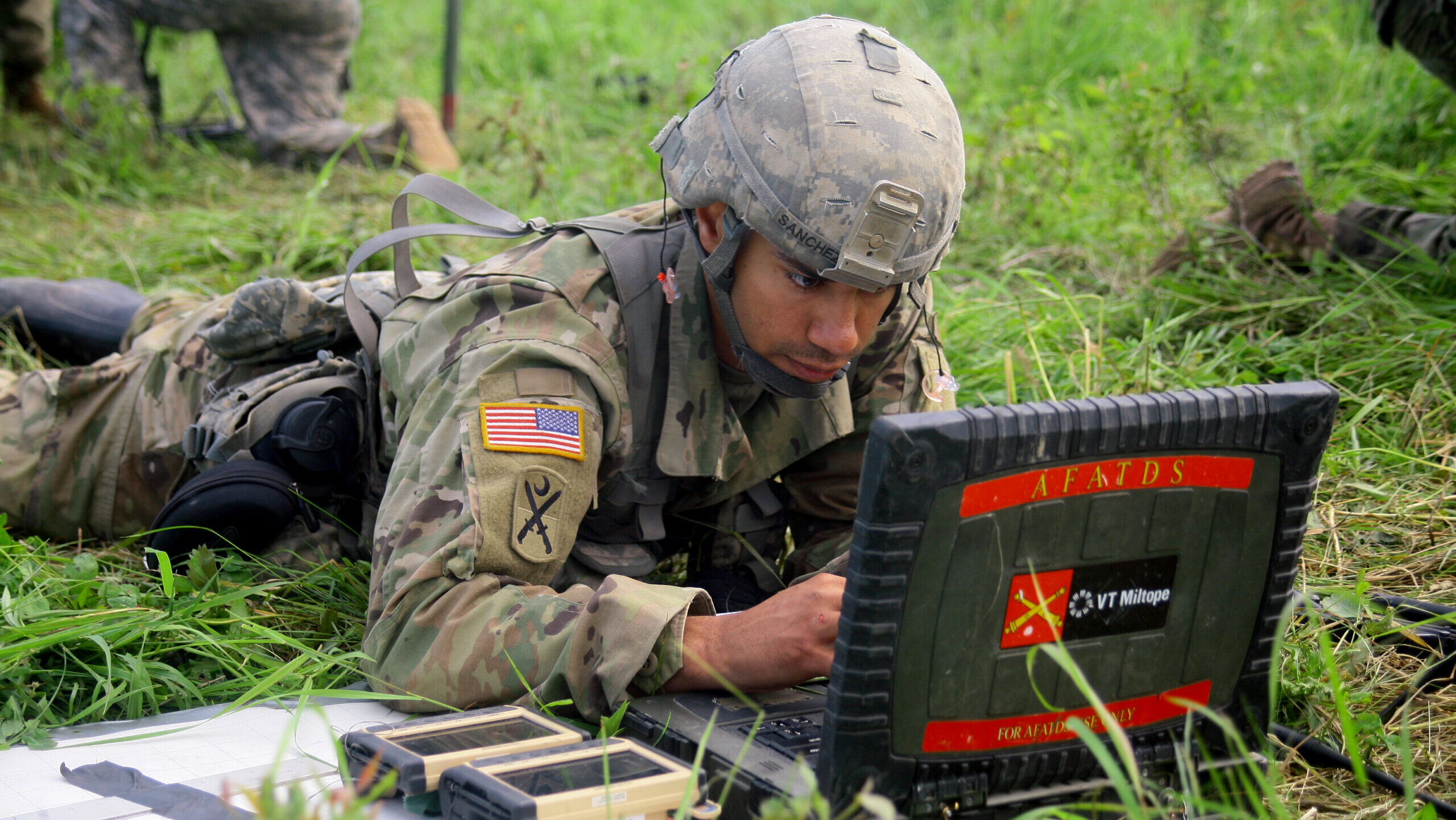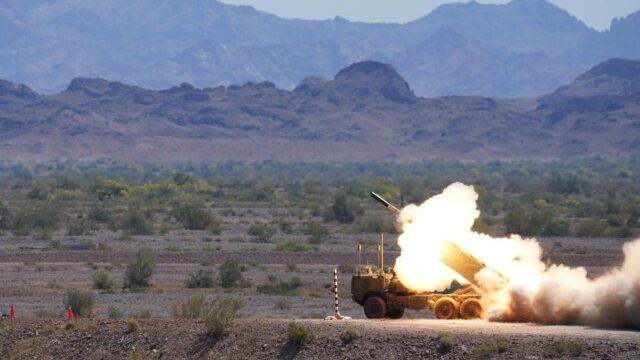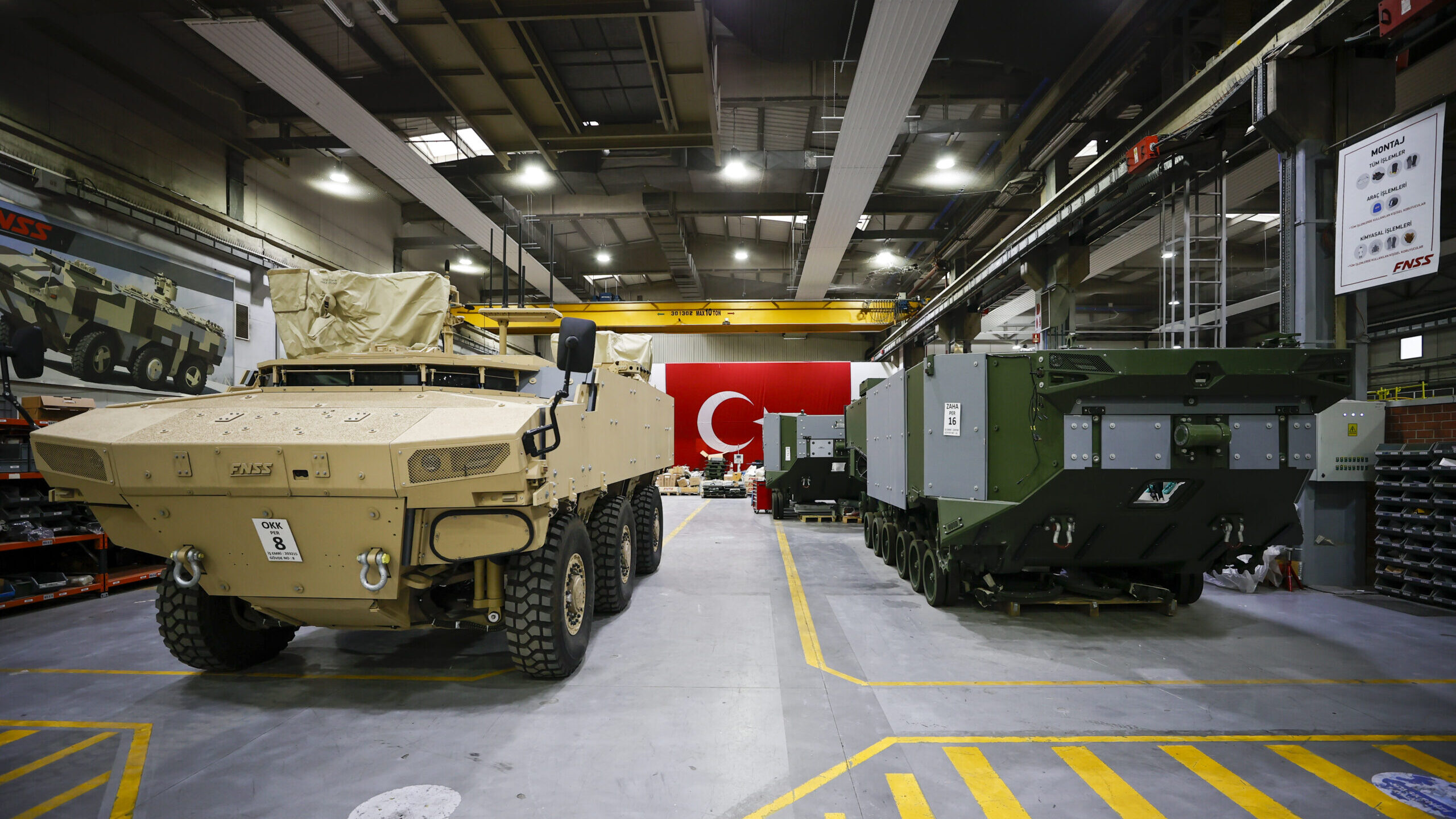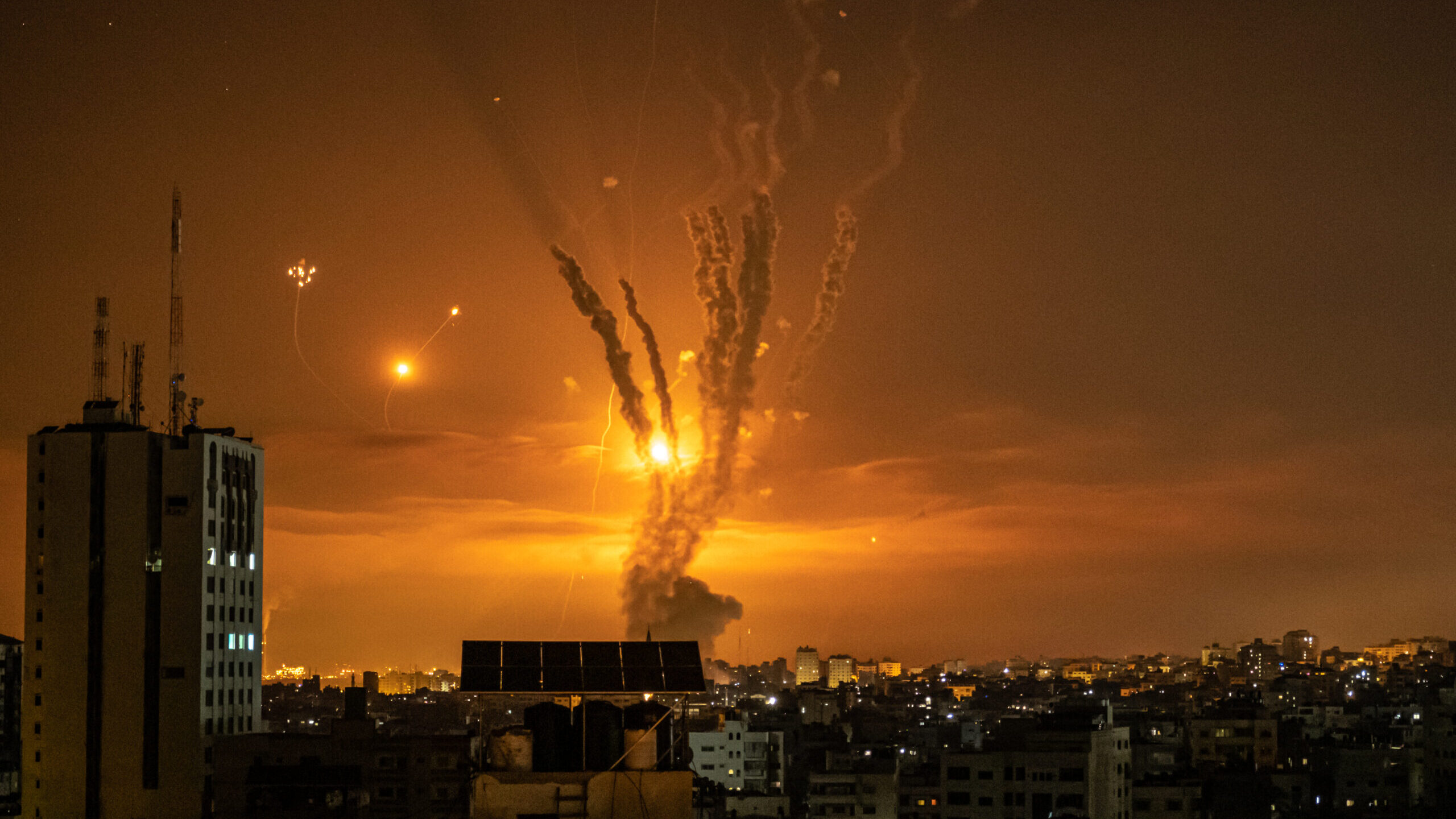A civilian contractor embarked with the 31st Marine Expeditionary Unit, lands a V-BAT drone aboard the USS Green Bay in the Philippine Sea, Feb. 2, 2023. (U.S. Marine Corps Sgt. Andrew King)
SYDNEY — The Indian defense market, not known for its historic openness to foreign investment, has gotten an injection of very fresh US defense technology from the AI and drone company, Shield AI.
The pan-industrial Indian company, JSW Group, has formed a joint venture with the US firm and JSW plans to invest roughly $90 million in the next two years to build a plant, secure the intellectual property and train workers. The goal is to build V-BAT, Shield’s vertical takeoff and landing drone, in India, as well as provide its support and maintenance.
A press release from Shield AI notes that JSW’s “investment will enable JSW to establish a local supply chain and create an advanced facility in India for manufacturing, assembling and testing V-BAT aircraft.” The US Marines own and operate V-BAT.
This deal appears to be in keeping with a larger Indian effort known as Atmanirbharta designed to encourage foreign companies to work in India, instead of the foreign companies designing, building and assembling weapons to be exported to India. That effort includes an investment fund to attract disrupters and smaller companies, the webpage of which has a link to the drone deal.
“Once reliant on foreign suppliers, India now places a high priority on self-reliant manufacturing to meet its security needs, reinforcing its vision to strengthen national resilience and reduce dependency on external sources,” an Oct. 24 press release by the Indian Ministry of Defense about Atmanirbharta notes.
It says that India used to rely on foreign countries for much of its weapons, with “65-70% of defense equipment being imported. However, this landscape has dramatically shifted, with around 65% of defense equipment now manufactured within India.” It points out that “21% of this production comes from the private sector, bolstering India’s journey toward self-reliance.”
Shield’s release claims that this deal will “allow India to function as a global production hub for the San Diego-based firm “to handle both domestic and international sales and maintenance. It also will, the companies say, “reduce reliance on external sources and ensure consistent delivery to India’s Armed Forces.”
This “marks a significant step in boosting India’s defense capabilities by bringing in world-class UAS technology to the country,” the release claims.
“JSW recognizes the same thing Shield AI does: that Group 3 UAS drones like the V-BAT can accomplish the same missions as many helicopters and larger Group 5 UAS drones for a fraction of the price,” Brandon Tseng, Shield AI’s co-founder and a former Navy SEAL, said in the release. “As the market shifts from expensive, exquisite aircraft to swarms of lower-cost, AI-piloted UAS drones, this collaboration builds upon Shield AI’s significant U.S. investments, enhances global distribution, and supports continued expansion of U.S. operations.”
Shield AI’s managing director for India, Sarjan Shah, said the deal with JSW Group “has been crafted over a multi-year period to transform the depth, scale and scope of India’s indigenous capabilities in the field of military unmanned systems.”


